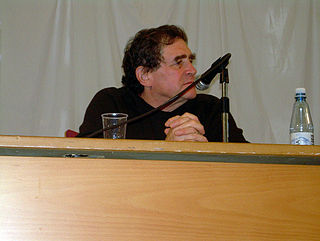A Quote by Neri Oxman
In the United States alone, 450 billion square feet of glass facade is produced every year. What if we could take this chance to use the glass to harness solar energy and allow the architecture to respond to the light and heat of the sun, to create photosynthesis and generate solar energy?
Related Quotes
One of the reasons I think the population question is important, if we want to be as green as possible, any of our energy that is truly renewable is limited. Solar and wind are intermittent and they're so diffuse, it's difficult to harness them in a significant way. But one thing we could be doing is making it a law (like it is in Israel and Cyprus) to take every building eight stories or under and heat all of the water in those buildings with solar energy. It's absolutely simple and cheap technology.
The transition from coal, oil, and gas to wind, solar, and geothermal energy is well under way. In the old economy, energy was produced by burning something - oil, coal, or natural gas - leading to the carbon emissions that have come to define our economy. The new energy economy harnesses the energy in wind, the energy coming from the sun, and heat from within the earth itself.
The sunlight ... that strikes Earth’s land surface in two hours is equivalent to total human energy use in a year. While much of that sunlight becomes heat, solar energy is also responsible for the energy embodied in wind, hydro, wave, and biomass, each with the potential to be harnessed for human use. Only a small portion of that enormous daily, renewable flux of energy will ever be needed by humanity.
In nature the only source of energy is from the sun. So in ecological systems everything comes from the sun through the process of photosynthesis whereas now in human built environment our source of energy is from fossil fuels, renewable, wood energy or hydro-energy but it is not from the sun. So until we are able to operate and run a human built environment by imitating photosynthesis it will be a long while before we can have a true eco-system.
Yes, sunny Nevada is an ideal state for solar power. As it gets cheaper, the state should use solar whenever it makes financial sense. But politicians shouldn't force you to buy it regardless of cost. It doesn't make sense to insert into the state constitution a requirement on energy use that locks Nevada into 50 percent wind and solar.
In reality, Republicans have long been at war with clean energy. They have ridiculed investments in solar and wind power, bashed energy-efficiency standards, attacked state moves to promote renewable energy and championed laws that would enshrine taxpayer subsidies for fossil fuels while stripping them from wind and solar.








































